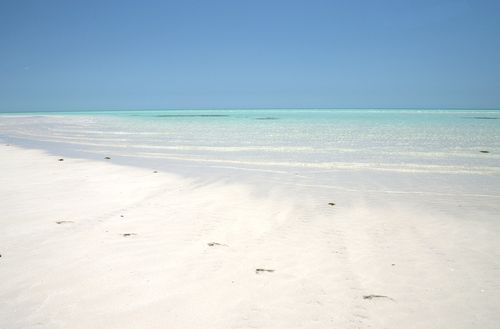|
|
Qatar is an oasis of natural treasures and a glittering symbol of prosperity in the Middle East. Though designated as an emirate, Qatar is an independent identity and not part of the United Arab Emirates. Resting on a jutted out Arabian Peninsula over the Persian Gulf, Qatar projects misleading surroundings that ends with pleasant surprises. The country’s terrain is nothing special but a monotonous series of sand dunes that flow down in different shapes and sizes, smoothness undisturbed. However, these sandy roller coaster rides suddenly comes to an end by the shorelines of the Persian aquamarine waters. This west Asian country has all the excitement hidden in its quarters to lure in the adventure-loving souls of the world. Doha is the capital city of the country. Al Wakrah, Al Khor, Dukhan, Al Shamal, Mesaieed, Ras Lafan are other important cities of the country.
Qatar occupies an area of 11,437 square kilometres and is part of the Arabian Peninsula that spreads out 160 kilometres north into the Persian Gulf. Naturally, the country has no land borders except with Saudi Arabia in south. Its topography consists of a rocky flat surface with some limestone outcrops in Dukhan area in the west and Fuwairit area in the north. In the southeast side there is an inlet that is known as the Inland Sea. It has a number of islands, the most important of which are Halul, Shira'aw, Al-Ashat and others. Some islands are still in dispute over authoritarian claim between Qatar and Bahrain. There is also huge limestone disposition over the rugged terrain of western Qatar where lies the highest point of the country, the Jebel Dukhan. Oil fields are spread nearly all over the country. Qatar has a moderate desert climate with long hot summers and short mild winters and little rain in winter. The population of the country is approximately 863,051, which is dominated by Qataris or Arabs of the Wahhabi sect of Islam. Arabic is the official language in Qatar but English is also widely spoken.
 Persian Gulf
Persian Gulf
|
Previous to the reign of Bahrain, Qatar was initially ruled by the Persians for centuries. The Sheikhs of Bahrain took hold of the realms from early eighteenth century and continued till middle half of the nineteenth century. However, a war broke out in Qatar in absence of the rulers. By this time both the British and Ottoman Turkish wanted to get control over Qatar for its oil deposits. The Ottoman Empire was not successful and Qatar became a British protectorate from 1916 until 1971, when it became independent. The following decades were marred by territorial disputes with Bahrain and Saudi Arabia. During the Persian Gulf War of 1991 international coalition forces used Qatar as their base. In June 1995, Crown Prince Hamad bin Khalifa al-Thani deposed his father in a bloodless coup and led the country towards economic reforms.
The economy of Qatar is dominated by high revenue generations from oil and natural gas. They account for 70% of export income. Oil and gas revenues have been used to diversify the economy, including the development of chemicals, steel, cement, and fertilizer industries and banking.
Qatar is ruled under traditional monarchy with recent introduction of a constitution. The new constitution provides for a 45-member Consultative Council or Majlis al-Shura, of which the public would elect two-thirds of the members and the emir or king would appoint the remaining members.
|
|

